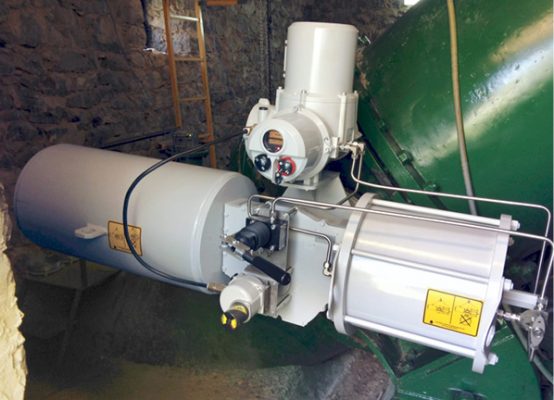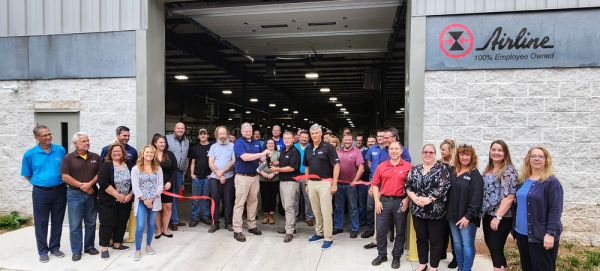CCEFP-Associated Projects Gain Federal Funds, Director Reports

By Michael Degan, Fluid Power Journal Editor
The U.S. Department of Energy has awarded funds for two projects underway by researchers associated with the Center for Compact and Efficient Fluid Power, director Zongxuan Sun reported in his semiannual state of the CCEFP address on Dec. 16.
DOE announced an award of $1.67 million for a project with the University of Minnesota to research the optimization and evaluation of energy savings for connected and autonomous off-road vehicles, Sun reported.
In a second project, DOE awarded $2.5 million for a project with Purdue University for a new approach for increasing efficiency of agricultural tractors and implements.
Researchers for both projects are associated with CCEFP, Sun said.
In total, CCEFP associates are working in an off-highway vehicle program for which DOE has appropriated up to $12 million.
The Energy and Water Appropriations report of the U.S. Congress continues funding of $10 million for improving the energy efficiency of commercial off-road vehicles, including about $5 million for fluid power systems, Sun said.
CCEFP-funded research that was initially reported in Sun’s June state of CCEFP address is continuing, he said. The four projects are:
- formulating a design for an electrohydraulic axial piston machine,
- investigating polymer-enhanced fluid effects on the dynamic response of hydraulic pumps,
- discovering a short-term energy storage system for high-power hybrid hydrostatic transmissions, and
- developing electrohydraulic system diagnostics with recursive spectral analysis.
CCEFP funds each project with $50,000 in seed money to produce preliminary results that can be used to attract greater levels of funding from other sources. Results from the projects are presented in CCEFP summits and webinars.
Looking ahead to 2021, CCEFP plans to continue off-highway vehicle and powertrain research, Sun said.
Sun reported that, as an organization, CCEFP has “achieved sustainability” under a new membership structure inaugurated in 2018.
“Our administration costs are at a historical low,” he said. “We started the new membership structure in 2018 and just entered year three under this new structure. This new funding mechanism for the center is stable.”
In another administrative update, Sun reported that CCEFP has completed transitioning its federal program support, managed by the University of Minnesota, to UMN’s federal relations director in Washington, D.C. The director is charged with working to ensure continuation of DOE’s off-highway program, exploring fluid power powertrain research programs in the Department of Defense, and helping to establish a future off-highway powertrain research center, Sun reported.
Sun lauded CCEFP’s ties to DOE’s Technology in Residence program.
The program’s “objective is to connect CCEFP industry members with researchers at national laboratories so they can access the broad expertise at national labs,” he said. “Because of this program, we have invited many researchers from national laboratories to speak at our summits as well as at our webinar series.”
CCEFP partners have also worked with the labs to produce a number of proposals and concept papers, Sun reported.
“Clearly there is a lot of ongoing activity already due to this collaboration,” he said. “The Technology in Residence program is an excellent vehicle to identify future research proposals and collaborations.”
For more information, visit www.ccefp.org.







